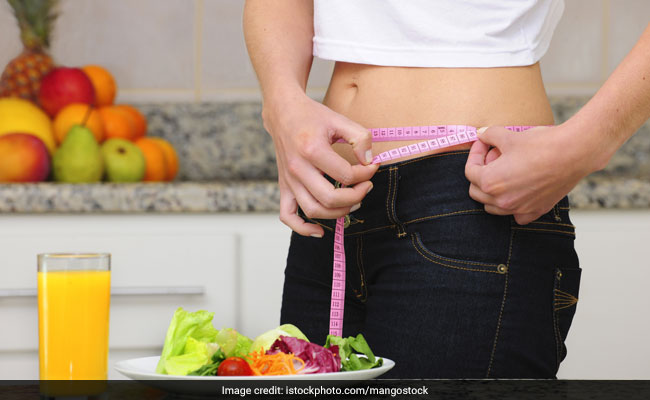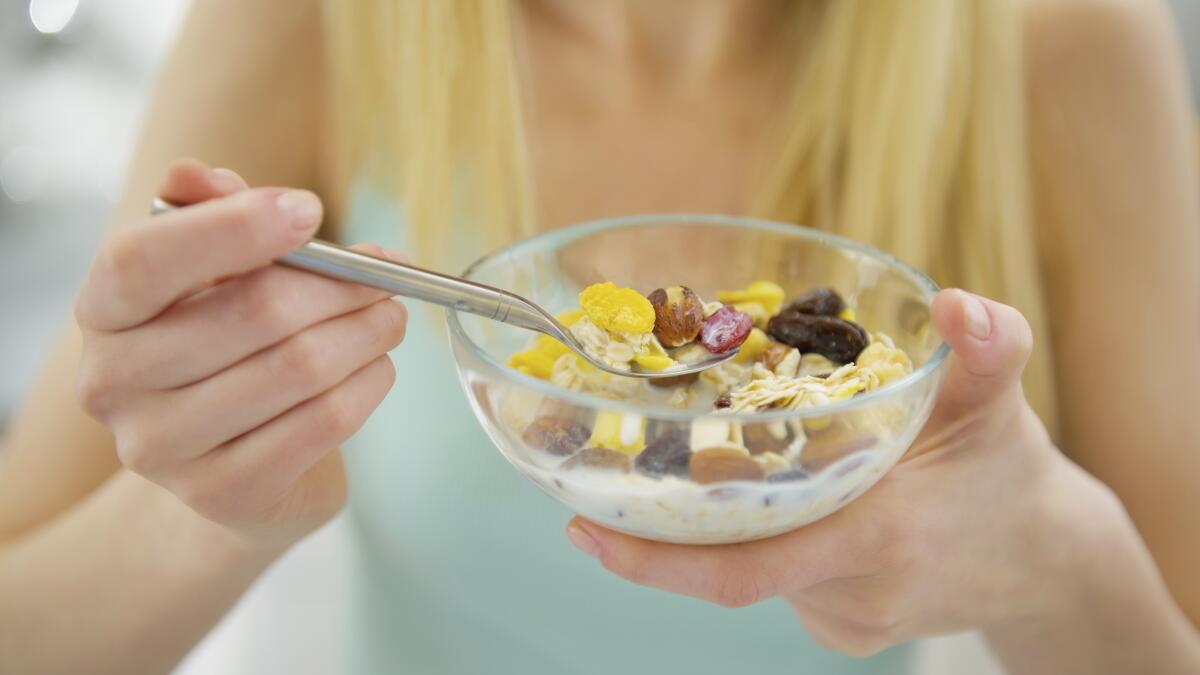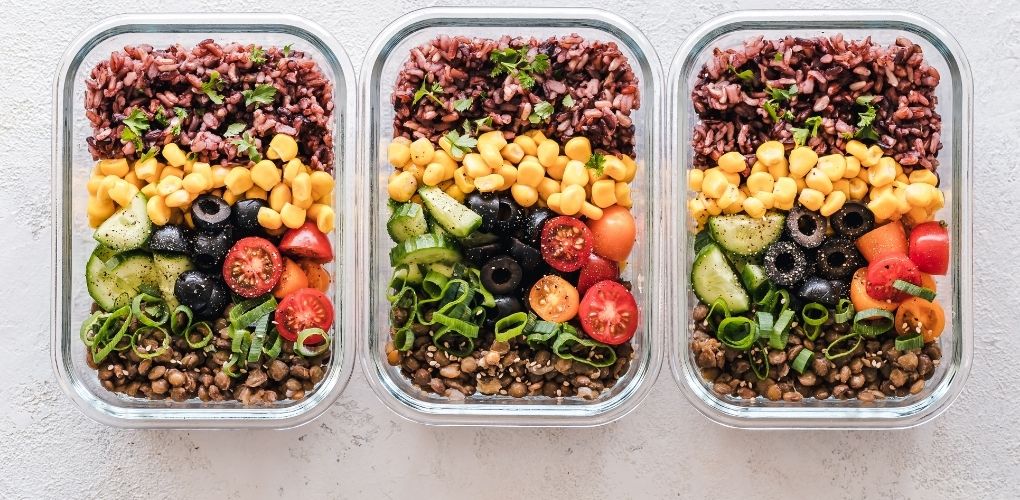
Many people suffering from cancer don't realize the importance of nutrition. Many diets are meant to reduce weight but many do not consider nutrition's role in cancer treatment. Balanced nutrition is key for staying healthy during treatment and preventing diseases. Dr. John Shin is a Mayo Clinic Oncologist and hematologist who shares tips on how to eat healthy to fight cancer. For more information, you can listen to this podcast on iTunes, Tune-in Apple or Spotify.
It is important to eat food rich in nutrients. The Mayo Clinic Healthy Weight Pyramid encourages more vegetables, fruit,, and lean meat. Whole grains and lean meats are ideal sources of protein. Unsaturated fats may lower cholesterol and increase your risk of developing coronary heart disease. You can complete the meal with a healthy, calorie-free beverage. The diet is a great way of eating healthy and losing weight.

The Mayo Clinic Diet emphasizes restructuring eating habits. It doesn't restrict whole food groups but does recommend limiting portions of certain foods. This program includes meal plans as well as serving suggestions that can be used to plan meals. It promotes foods high on Mayo Clinic Healthy Weight Pyramid. The Mayo Clinic Diet is designed for people who want to lose weight. Although this diet may not be right for everyone, it is very effective for many people.
The Mayo Clinic Diet encourages a healthy diet with plenty of fiber, protein, as well as healthy fats. This diet promotes healthy eating habits that are low in fat and high in calories. There are also options for vegans, vegetarians, and people following the Mediterranean diet. Moreover, it outlines a vegetarian-friendly, high-protein, and ketogenic eating plan. The Mayo Clinic Diet can help you lose weight.
The Mayo Clinic diet includes whole-grain carbohydrates, lean proteins, and healthy fats. It promotes healthy eating habits and decreases calories. The Mayo Clinic diet can help you lose weight safely. The Mayo Clinic diet encourages healthy eating and a low intake of saturated fats. The Mayo Clinic diet is designed to provide results within one week for diabetics. This diet has many other benefits such as lowered blood pressure and inflammation.

It is important to eat plenty fruits and vegetables. However, the Mayo Clinic Diet suggests that a majority of your diet should consist of produce. Because fruits and vegetables are the most nutritious foods, this is important. It is important to include a variety of fruits and vegetables in your daily diet, as it will ensure a better vitamin and mineral intake. You can also include protein in your daily meal. You can adjust this diet to meet your energy requirements.
FAQ
What does butter have to do with men?
Butter is one source of saturated fats. This type of fat contributes to healthy skin, hair, and stronger bones.
Butter also contains vitamin K, which prevents bleeding from cuts and bruises. Vitamin K and vitamin B work together to prevent any bruising.
Butter is also rich mineral, including calcium and phosphorous. These minerals promote stronger bones, teeth, and teeth.
Butter does have some drawbacks. Butter is high in cholesterol. Studies show that too much cholesterol can increase your risk of developing heart disease.
Butter is high in saturatedfat, which contributes both to obesity, and raises cholesterol.
But if butter is a must, you can spread it on bread and not dip it in soups or salads. Bread absorbs more oil than potatoes or pasta.
Do I have to exercise every single day?
No! No! It means you need to exercise hard enough or walk fast enough that you are slightly out-of- breath.
Can I go to the gym 7 days a week?
You can go to the gym seven times a week, but not at once. This means you need to choose a time when you feel rested and not too tired.
This will help you remain motivated and have more energy to do other activities.
You also need to ensure that you eat well enough during these times. This will help you not feel tired or slow at the gym.
Last, you must make sure that there isn’t another thing competing for your attention. Consider avoiding exercising on school night if you have small children. This will keep your attention from your workout.
Egg is good for men?
The egg is rich in all nutrients needed by the human body. It helps to maintain strong bones and healthy hearts and lungs and stabilize blood pressure.
Eggs are a good source of protein and vitamins A, B12, D, E K, calcium, phosphorus iron, zinc copper, magnesium selenium and even riboflavin.
The egg yolk contains high levels of cholesterol. However, it does not contain saturated fat. Eggs contain less saturated fat than most other foods.
In addition, they are low in sodium and calories. They are very versatile and can be cooked any way you'd like. You can fry, poach, scramble, boil, hard-boil, and bake them.
They are extremely nutritious and simple to prepare.
Two whole eggs should be eaten each day. You don't have to eat eggs.
Our bodies need eggs to provide the essential nutrients they require. You can add eggs to your daily diet now.
Statistics
- Candidates and applicants must pass all four tests at 70% (minimum level) to graduate from Basic Deputy U.S. Marshal (BDUSM) Training. (usmarshals.gov)
- Get free shipping and 25% off today. (healthline.com)
- Cardmembers earn 5% Back at Amazon.com with a Prime Credit Card. (amazon.com)
- An estimated calorie range for moderately active adult males falls between 2,200 to 2,800 calories per day, depending on age. (eatright.org)
- Are You One of the 20% of Guys (mh.co.za)
External Links
How To
How can I burn fat and exercise?
Exercise can help you burn calories and increase your metabolism.
Exercise at a moderate intensity to safely lose weight.
These are some tips to help you lose fat while working out:
-
Cardio exercises include swimming, running or cycling.
-
Do 30 minutes of exercise three times a week.
-
You can add strength training into your exercise routine if you're looking to lose even more weight.
-
Avoid intense exercise. You can build muscle and not break down muscle tissue.
-
Drink plenty of water during exercise. Water helps to flush out toxins from the body and maintains proper hydration.
-
After working out, drink low-fat protein shakes. Protein shakes boost energy and repair muscle tissue.
-
You can eat smaller meals throughout the day so that you don't feel hungry in between meals.
-
Don't skip breakfast! Skipping breakfast can lead to fatigue and sluggishness.
-
Take care of your mental health. Stressful situations can slow your metabolism.
-
Keep a positive attitude. Studies show that overweight people are more likely to be obese than those who perceive themselves as attractive.
-
Get enough rest. Insufficient sleep can make it more difficult to lose weight.
-
Stay active. Get up every hour and get moving.
-
Maintain a healthy diet. Eat right to feel satisfied and full for longer.
-
Find relaxation techniques. Your body won't release stress hormones that cause muscle tissue destruction if you have a tense mind.
A balanced diet will provide all nutrients that are necessary for growth.
Six small meals per day is better than three large meals. This allows your body time to digest what you've eaten.
For strong bones to be maintained, you need approximately 500mg of calcium per day. Calcium is available in dairy products like milk, yogurt, fortified soy beverages, orange juice, cereal, bread, and cereals.
Calcium comes from leafy green vegetables, beans, tofu, nuts, seeds, and cheese.
Your body needs vitamin D to absorb calcium. Vitamin D is found in certain fortified foods, such as egg yolk and fatty fish.
Vitamin E plays an important role in skin health. Vitamin E can also be found in vegetable oil, wheat germ oils, peanuts as well almonds, sunflower seeds and corn.
Your body requires zinc to function normally and for wound healing. Zinc can be found in seafood, legumes and meats.
Zinc deficiency can cause fatigue and loss of appetite. It can also lead to depression and impaired immunity.
Consuming too much sugar can cause insulin resistance. This causes an increase in blood glucose levels. Insulin resistance leads directly to weight gain.
High levels of free radicals can lead to insulin resistance. Free radicals are molecules that have unpaired electrons, which can cause damage to cell membranes or other parts of your body.
Free radicals come mainly from food additives, pesticides, herbicides, preservatives, smoking, air pollution, radiation, chemicals in cosmetics, lotions, and household cleaning supplies.
Free radical damage can cause cancer, heart disease and diabetes, as well as arthritis, asthma, and other diseases.
To prevent free radical damage, eat a healthy diet rich in antioxidants. Antioxidants protect against oxidative damage.
Vitamin C, beta carotene (found within citrus fruits, carrots, sweet potatoes and spinach), Vitamin E (found inside nuts, olive oils, avocados and eggs), and Vitamin C (found among mangoes.
Selenium, manganese (and zinc) are other antioxidant nutrients.
Selenium is known to protect cells from the oxidative damage that free radicals can cause. Selenium can also be found in Brazil nuts (tuna), liver, kidneys and shrimp.
Copper protects the brain and eyes as well as the lungs and red blood cells. Copper is found in shellfishes, poultry, meat, organ meats, and other foods.
Manganese forms an essential part of bone structure. Manganese is found in brown rice, spinach, bananas, prunes, raisins, oatmeal, and lentils.
Zinc helps with normal growth, reproduction, as well as wound healing. Zn is found in lean meats, poultry, white fish and eggs.